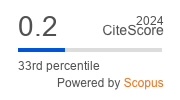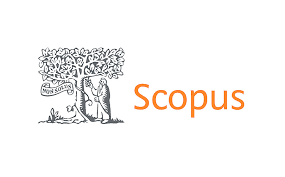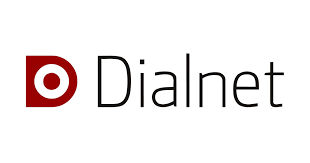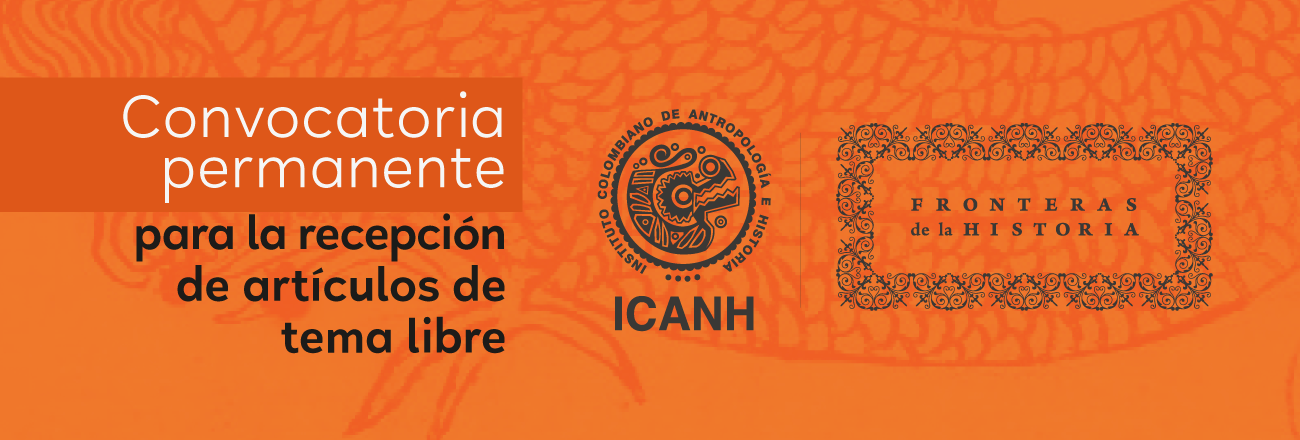Beyond the norm: review of Spanish educational legislation and innovative practices for the care of gifted students
Abstract
In Spain, the current legislation governing non-university education considers students with High Intellectual Abilities (HIA) as students with Specific Educational Support Needs (SEN). In this context, the Education Departments of the Autonomous Communities are responsible for serving these students, so there is no common protocol for identifying and addressing their needs. In the university system the current law regulating it proclaims educational equity, although a low percentage of universities serve students with HIA. The objectives of this study are to analyze the evolution of attention to HIA students in the legal regulations of the pre-university and university education systems and to highlight two alternative educational practices to the formal curriculum that develop student talent. In short, the legislative evolution regarding the attention to HIA students is noted, although it is still necessary, based on the principles of inclusion and educational equity that govern both systems, to make a greater commitment to teacher training, implement student identification processes throughout the formal education system, and increase innovative pedagogical practices that guarantee the optimal development of the talent potential of all students.
Downloads
References
Abdel Qader, E. F. M., y Elew, E. A. E. (2024). A future vision for establishing a center for caring for gifted and outstanding groups at assiut university: A prospective study. Scientific Journal of Faculty of Education in Assiut, 40(7), 250-281. https://doi.org/10.21608/mfes.2024.375269
Aguilera, J.L., y Macías, M. E. (2025). La Universidad ante los Estudiantes con Altas Capacidades. Anduli: Revista Andaluza de Ciencias Sociales, (27), 199–225. https://doi.org/10.12795/anduli.2025.i27.09
Al-Bourini, E. S., Areen Abd Alqader, Q. A., Aranki, R. M. E. y Almajali, H. K. (2022). The level of psychological stress and its relationship with the cognitive motivation of gifted students at King Abdullah II schools of excellence. Resmilitaris, 12(2), 4417-4432. https://resmilitaris.net/issue-content/the-level-of-psychological-stress-and-its-relationship-with-the-cognitive-motivation-of-gifted-students-at-king-abdullah-ii-schools-of-excellence-403
Almukhambetova, A., y Hernández-Torrano, D. (2020). Gifted students’ adjustment and underachievement in university: An exploration from the self-determination theory perspective. Gifted Child Quarterly, 64(2), 117-131. https://doi.org/10.1177/0016986220905525
Altas capacidades y Talentos (20 de octubre de 2023). Legislación española sobre ACI. https://www.altascapacidadesytalentos.com/que-dice-lomce-altas-capacidades/
Antunes, A. P., Dorta, M. J. y Borges, Á. (2022). Alumnado con altas capacidades intelectuales en la Comunidad Autónoma de Canarias: un importante reto educativo en la actualidad. Revista Lusófona de Educação, 55, 167-185. https://doi.org/10.24140/issn.1645-7250.rle55.11
Baccassino, F., y Pinnelli, S. (2023). Giftedness and gifted education: A systematic literature review. Frontiers in Education, 7, 1073007. https://doi.org/10.3389/feduc.2022.1073007
Balestra, S., Sallin, A., y Wolter, S. C. (2023). High-Ability Influencers? The Heterogeneous Effects of Gifted Classmates. Journal of Human Resources, 58(2), 633-665. https://doi.org/10.3368/jhr.58.4.0920-11170R1
Barrera, E., Sarasola, J. L., García-González, A. y Ruiz, M. (2023). Neglecting gifted students: its impact on scholastic failure: perception from the families. Culture and Education, 35(1), 120-154. https://doi.org/10.1080/11356405.2022.2121133
Berk, R.A., Berg, J., Mortimer, R., Walton-Moss, B. y Yeo, T.P. (2005). Measuring the Effectiveness of Faculty Mentoring Relationships. Academic Medicine, 80(1), p 66-71. https://doi.org/10.1097/00001888-200501000-00017
Comes, G., Díaz, E. M., Luque, A., y Ortega, J.M. (2009). Análisis de la legislación española sobre la educación del alumnado con altas capacidades. EA, Escuela abierta: revista de Investigación Educativa, (12), 9-31. https://www.ceuandalucia.es/escuelaabierta/pdf/articulos_ea12%20pdf/comes%209-31%2012.pdf
Ćurić, A., Blanuša Trošelj, D., y Debeljuh, A. (2025). Comparative Analysis of Gifted Education in Denmark and the USA With a Focus on the State of Iowa. TEM Journal, 14(1), 661-670. https://doi.org/10.18421/TEM141-5
Dai, D. Y., y Chen, F. (2013). Three paradigms of gifted education. Gifted Child Quarterly, 57(3), 151-168. https://doi.org/10.1177/0016986213490020
Fernández-Molina, M. (2016). La formación en altas capacidades intelectuales de los profesionales psicoeducativos: resultados del curso de especialización de la Universidad de Málaga. Revista on line de Política e Gestão Educacional, 668-687. https://doi.org/10.22633/rpge.v20.n3.9763
Ferrando, M. (2022). Alumnado de altas capacidades intelectuales: Una aproximación. Aula de secundaria, 47, 8-11.
Gagné, F. (2021). Differentiating giftedness from talent: The DMGT perspective on talent development. Routledge/Taylor & Francis Group. https://doi.org/10.4324/9781003088790
García-Martínez, B., Lozano, J., y Cerezo, M. C. (2021). Educación intercultural-inclusiva desde el patrimonio cultural: la voz del alumnado. Revista Electrónica Interuniversitaria de Formación del Profesorado, 24(3). https://doi.org/10.6018/reifop.456421
García-Perales, R., y Almeida, L. (2021). Analysing Educational Interventions with Gifted Students. Systematic Review. PMC, 12(3), 1-14. https://doi.org/10.3390/ejihpe12030001
García-Rubio, J. (2017). Evolución legislativa de la educación inclusiva en España. Revista Nacional e Internacional de Educación Inclusiva. 10 (1) pp. 251-264. https://revistaeducacioninclusiva.es/index.php/REI/article/view/271
Girgin, D. (2020). Evaluation of project-based learning process of gifted children via reflective journals. International Journal of Curriculum and Instruction, 12(2), 772-796. https://ijci.net/index.php/IJCI/article/view/485
Gómez-Puerta, M., Chiner, E., Rodríguez, R. Gómez, A. y Domínguez, C. (2022a) Servicios de apoyo a la inclusión de los estudiantes universitarios: estudio comparado. En D. Cobos, E. López-Meneses, A.H. Martín, L. Molina y A. Jaén. Educar para transformar: Innovación pedagógica, calidad y TIC en contextos formativos. Dykinson.
Gómez-Puerta, M., Chiner, E., Rodríguez, R. y Gómez, A. (2025). Percepción del Estudiantado con Altas Capacidades Intelectuales sobre la Educación Superior Española. Anduli Revista Andaluza de Ciencias Sociales, (27), 10, 227-250. https://doi.org/10.12795/anduli.2025.i27.10
Gómez-Puerta, M., Chiner, E., Rodríguez, R., Domínguez, C., y Gómez, A. (2022b). Apoyo al alumnado con altas capacidades intelectuales en las universidades españolas. En R. Satorre (Ed.), El profesorado, eje fundamental de la transformación de la docencia universitaria (pp. 389-397). Octaedro.
Gómez-Puerta, M., Rodríguez, R., y Chiner, E. (2023). Guía de recomendaciones para la atención del alumnado universitario con altas capacidades intelectuales. Limencop. https://rua.ua.es/dspace/handle/10045/135040
Groman, J. (2022). Considering the Long-Term Transformative Impact of Creativity Training on the Work and Lives of Teachers. Journal of Advanced Academics, 33(1), 43-68. https://doi.org/10.1177/1932202X211036348
Gubbins, E., McMillen, K., Renzulli, J., Eckert, R., y Little, C. (2023). Systems and models for developing programs for the gifted and talented. Routledge. https://doi.org/10.4324/9781003419426
Heacox, D. (2017). Making differentiation a habit: How to ensure success in academically diverse classrooms. Free Spirit Publishing. https://eric.ed.gov/?id=ED512059
Heller, K. A., Perleth, C., y Lim, T. K. (2005). The Munich model of giftedness designed to identify and promote gifted students. Conceptions of giftedness, 2, 147-170. https://doi.org/10.1017/CBO9780511610455.010
Ibáñez, A., Guillén, V., Gallego, T., y Baquero, F. (2021). Apoyo a adolescentes con altas capacidades desde la Universidad de Cantabria: experiencia del programa Amentúrate (III edición). Revista INFAD de Psicología. International Journal of Developmental and Educational Psychology., 2(2), 433–442. https://doi.org/10.17060/ijodaep.2021.n2.v2.2251
Kalaji, G., y Alborno, N. (2023). The Influence of Gifted and Talented Programs on Students’ Self-concept. Athens Journal of Education, 10(3), 507-522. https://doi.org/10.30958/aje.X-Y-Z
Kaplan, S. N. (2023). Self-directed challenges: Self-defined di¬fferentiation. Gifted Child Today, 46(1), 57-59. https://doi.org/10.1177/10762175221131909
Ley 14/1970, de 4 de agosto, General de Educación y Financiamiento de la Reforma Educativa. [Disposición derogada]. BOE, 187, de 6 de agosto, pp. 12525-12546. https://www.boe.es/buscar/doc.php?id=BOE-A-1970-852
Ley Orgánica 11/1983 de Reforma Universitaria (LRU). BOE, 209, de 1 de septiembre de 1983, pp. 24034 a 24042. https://www.boe.es/eli/es/lo/1983/08/25/11
Ley Orgánica 8/1985, de 3 de julio, reguladora del Derecho a la Educación. BOE, 159, de 4 de julio de 1985, pp. 21015 a 21022. https://www.boe.es/eli/es/lo/1985/07/03/8/con
Ley Orgánica 1/1990, de 3 de octubre, de Ordenación General del Sistema Educativo. (LOGSE). BOE, 238, de 4 de octubre de 1990, pp. 28927 a 28942 https://www.boe.es/eli/es/lo/1990/10/03/1
Ley Orgánica 9/1995, de 20 de noviembre, de la participación, evaluación y el gobierno de los centros docentes. BOE, 278, de 21 de noviembre de 1995, pp.33651 a 33665. https://www.boe.es/eli/es/lo/1995/11/20/9
Ley Orgánica 6/2001, de 21 de diciembre, de Universidades. BOE, 307, de 24 de diciembre de 2001, pp. 49400-49425. https://www.boe.es/buscar/pdf/2001/BOE-A-2001-24515-consolidado.pdf
Ley Orgánica 10/2002, de 23 de diciembre, de Calidad de la Educación (LOCE). BOE, 307, de 24 de diciembre de 2002, pp.45188 a 45220. https://www.boe.es/eli/es/lo/2002/12/23/10
Ley Orgánica 2/2006, de 3 de mayo, de Educación (LOE). BOE, 106, de 24 de mayo de 2006, pp. 17158 a 17207. https://www.boe.es/buscar/pdf/2006/BOE-A-2006-7899-consolidado.pdf
Ley Orgánica 4/2007, de 12 de abril, por la que se modifica la Ley Orgánica 6/2001, de 21 de diciembre de 2007, de Universidades. BOE, 89, de 13 de abril de 2007, pp. 16241-16260. https://www.boe.es/eli/es/lo/2007/04/12/4
Ley Orgánica 8/2013, de 9 de diciembre, para la mejora de la calidad educativa, (LOMCE). BOE, 295, de 10 de diciembre de 2013, pp. 97858 a 97921. https://www.boe.es/eli/es/lo/2013/12/09/8/con
Ley Orgánica 3/2020, de 29 de diciembre, por la que se modifica la Ley Orgánica 2/2006, de 3 de mayo, de Educación (LOMLOE). BOE, 340, de 20 de diciembre de 2020, pp. 122868 a 122953. https://www.boe.es/eli/es/lo/2020/12/29/3
Ley Orgánica 2/2023, de 22 de marzo, del Sistema Universitario (LOSU). BOE, 70, de 23 de marzo de 2023, pp. 43267 a 43339. https://www.boe.es/eli/es/lo/2023/03/22/2/con
López-Martín, R. (2020). ¡Cómo Hemos Cambiado! Medio Siglo de Escuela en España (1970-2020). Cuestiones Pedagógicas. Revista de Ciencias de la Educación, 2(29), 76–91. https://doi.org/10.12795/CP.2020.i29.v2.06
Martínez, M., Álvarez, A., y Iraurgi, I. (2024). Percepción Docente sobre la Inclusión Educativa del Alumnado con Altas Capacidades Intelectuales. REICE: Revista Iberoamericana sobre Calidad, Eficacia y Cambio en Educación, 22(4), 189-205. https://doi.org/10.15366/reice2024.22.4.010
Mendaglio, S. (2013). Gifted students’ transition to university. Gifted Education International, 29(1), 3-12. https://doi.org/10.1177/02614294124406
Merello, P., Barbera, A., Porcuna, R., y Herce, Mª P. (2023). Guía digital de oportunidades de desarrollo del talento en la universidad. Editorial Universitat Politècnica de València. 1300-1314. https://doi.org/10.4995/INRED2023.2023.16559
Moriña, A., Perera, V.H., y Melero, N. (2020). Difficulties and reasonable adjustments carried out by Spanish faculty members to include students with disabilities. British Journal of Special Education, 47(1), 6-23. https://doi.org/10.1111/1467-8578.12261
Nicholas, M., Skourdoumbis, A., y Bradbury, O. (2024). Meeting the needs and potentials of high-ability, high-performing, and gifted students via differentiation. Gifted Child Quarterly, 68(2), 154-172. https://doi.org/10.1177/00169862231222225
Orden de 14 de febrero de 1996 por la que se regula el procedimiento para la realización de la evaluación psicopedagógica y el dictamen de escolarización y se establecen los criterios para la escolarización de los alumnos con necesidades educativas especiales. BOE, 47, de 23 de febrero de 1996, pp. 6918 a 6922. https://www.boe.es/eli/es/o/1996/02/14/(3)
Ordoñez, T., Rodríguez-Lifante, A., González-García, M., Martínez, D., Ome, H., Gallofre, L., y García, M.I. (2022). Análisis e identificación de las capacidades y de los talentos en la etapa preuniversitaria y universitaria (red CARISMA). Universidad de Alicante. https://rua.ua.es/dspace/bitstream/10045/130561/1/Memories-Xarxes-ICE-202122_079.pdf
Palacios, S. y López-Aymes, G. (2024). Pautas orientadoras para la promoción de la capacidad de resiliencia en estudiantes universitarias con altas capacidades intelectuales. Revista con Ciencia EPG, 9(1), 21-49. https://doi.org/10.32654/ConCiencia.9-1.2
Pereira, N., y Peters, S.J. (2023). The Life and Work of Marcia Gentry: Providing Opportunities and Promoting Excellence. Roeper Review, 45(4), 261–267. https://doi.org/10.1080/02783193.2023.2246122
Pfeiffer, S. I. (2015). El Modelo Tripartito sobre la alta capacidad y las mejores prácticas en la evaluación de los más capaces. Revista de Educación, 368, 66-95. https://doi.org/10.4438/1988-592X-RE-2015-368-293
Pirovano, M.B. (2019). La inclusión educativa de niños, niñas y jóvenes talentosos. Perspectivas: Revista Científica de la Universidad de Belgrano, 2, 1, 38-49. https://revistas.ub.edu.ar/index.php/Perspectivas/article/view/51
Ramos, G., Chiva, I., Moral, A. y Pérez, A. (2024). Aprendizaje Basado en Proyectos de Investigación para el Desarrollo del Talento y las Altas Capacidades Intelectuales en la Universitat de València DACIU-UV. Comunicación presentada AIDIPE 2024, XXI Congreso Internacional de Investigación Educativa. Celebrado en Barcelona 19 y 21 de junio. https://hdl.handle.net/2445/218438
Real Decreto 157/2022, de 1 de marzo, por el que se establecen la ordenación y las enseñanzas mínimas de la Educación Primaria. BOE, 52, de 2 de marzo de 2022. https://www.boe.es/eli/es/rd/2022/03/01/157/con
Real Decreto 243/2022, de 5 de abril, por el que se establecen la ordenación y las enseñanzas mínimas del Bachillerato. BOE, 82, de 6 de abril de 2022. https://www.boe.es/eli/es/rd/2022/04/05/243/con
Real Decreto 943/2003, de 18 de julio, por el que se regulan las condiciones para flexibilizar la duración de los diversos niveles y etapas del sistema educativo para los alumnos superdotados intelectualmente. BOE, 182, de 31 de julio de 2003, pp. 29781 a 29783. https://www.boe.es/eli/es/rd/2003/07/18/943
Reis, S. M., y Renzulli, J. S. (2023). Challenging Gifted and Talented Learners With a Continuum of Research-Based Interventions Strategies. University of Connecticut. https://doi.org/10.1093/oxfordhb/9780195369809.013.0157
Renzulli, J. S. (2020). The three-ring conception of giftedness: A developmental model for promoting creative productivity. Routledge. https://doi.org/10.1017/CBO9780511610455.015
Renzulli, J. S. (2022). What is [or Should be] the Pedagogy of Gifted Education Programs. International Journal for Talent Development and Creativity, 10(1-2), 179–192. https://doi.org/10.7202/1099951ar
Rodríguez-Dorta, M., Aguirre, T., y Borges, Á. (2021). El programa integral para altas capacidades (pipac): 18 años de experiencia. Aprender - Cuaderno de Filosofia e Psicologia da Educação, (26), 63-80. https://doi.org/10.22481/aprender.i26.10041
Rodríguez, R., Rabassa, G., Salas, R., y Pardo, A. (2017). Protocolo de identificación y evaluación del alumnado de altas capacidades intelectuales en centros escolares: el reto de dar respuesta a las necesidades educativas de este alumnado. Santillana. https://ibdigital.uib.es/greenstone/sites/localsite/collect/portal_social/index/assoc/uib0036.dir/uib0036.pdf
Rodríguez-Rodríguez, R. (2024). El camino a la excelencia: más allá de las altas capacidades intelectuales. Anduli: Revista Andaluza de Ciencias Sociales, 27, 107-.131 https://doi.org/10.12795/anduli.2025.i27.05
Rogers, K. B. (2019). Meta-analysis of 26 forms of academic acceleration: Options for elementary (primary) and secondary learners with gifts or talents. En B. Wallace, D. A. Sisk, y J. Senior (Eds.), The SAGE handbook of gifted and talented education (pp. 309-320). Sage Reference. https://doi.org/10.4135/9781526463074.n26
Serna, P., Ferrándiz, C., y Ferrando M. (2024). Efectos de un programa de enriquecimiento con tecnología educativa en el autoconcepto de estudiantes con altas capacidades. Aula Abierta, 53(4), 393-401. https://doi.org/10.17811/rifie.21175
Serna, P., Ferrándiz, C., y Ferrando, M. (2022). Conecta-T: Programa de desarrollo del talento. Una experiencia en tiempos de COVID 19. En D. Cobos, E. López-Meneses, A. Jaén, A. H. Martín, y L. Molina (Eds.), Educación y Sociedad: Pensamiento e innovación para la transformación social (pp. 2170-2181). Dykinson.
Shen, Y. (2022). Incubating Future Scholars in the Humanities: A Case Study of an Honors Program at Peking University. Journal for the Education of the Gifted, 45(3), 292-313. https://doi.org/10.1177/01623532221105294
Sternberg, R. J. (2024). A duplex model for giftedness. Gifted Child Quarterly, 68(2), 91-106. https://doi.org/10.1177/00169862231217730
Subotnik, R. F., Olszewski, P., y Worrell, F. C. (2021). The talent development megamodel: A domain-specific conceptual framework based on the psychology of high performance. Conceptions of giftedness and talent, 425-442. https://doi.org/10.1007/978-3-030-56869-6_24
Subotnik, R.F., Olszewski, P. y Worrell, F. C. (2011). Rethinking giftedness and gifted education: A proposed direction forward based on psychological science. Psychological Science in the Public Interest, 12, 3-54. https://doi.org/10.1177/1529100611418056
Tourón, J. (2020). Las altas capacidades en el sistema educativo español: reflexiones sobre el concepto y la identificación. Revista de Investigación Educativa, 38(1), 15–32. https://doi.org/10.6018/rie.396781
Tourón, J. (2023). ¿Puede una escuela inclusiva ignorar a sus estudiantes con altas capacidades? TERA2.0, 10, 24-46. https://www.javiertouron.es/curriculo-articulos/
Tourón, J. y Martín, D. (2019). Aprender y enseñar hoy: retos para los profesores. Nueva Revista, 167, 152-172. https://reunir.unir.net/handle/123456789/8628
Tourón, J., y Tourón, M. (2016). La Identificación del talento verbal y matemático: la relevancia de las medidas fuera de nivel. Anales de Psicología, 32(3), 638–651. https://doi.org/10.6018/analesps.32.3.259401
Van den Muijsenberg, E., Ramos, A., Vanhoudt, J., y Verschueren, K. (2021). Gifted university students: Development and evaluation of a counseling program. Journal of college counseling, 24(3), 224-240. https://doi.org/10.1002/jocc.12193
VanTassel-Baska, J., y Little, C. A. (2023). Content-based curriculum for advanced learners (4th edition). Prufrock Press. https://doi.org/https://doi.org/10.4324/9781003310426
Copyright (c) 2025 Genoveva Ramos Santana, Ana María Moral Mora, Inmaculada Chiva Sanchis

This work is licensed under a Creative Commons Attribution-NonCommercial-ShareAlike 4.0 International License.

Esta obra está bajo licencia internacional Creative Commons Reconocimiento-NoComercial-CompartirIgual 4.0.









_18.09_.00_1.png)


















